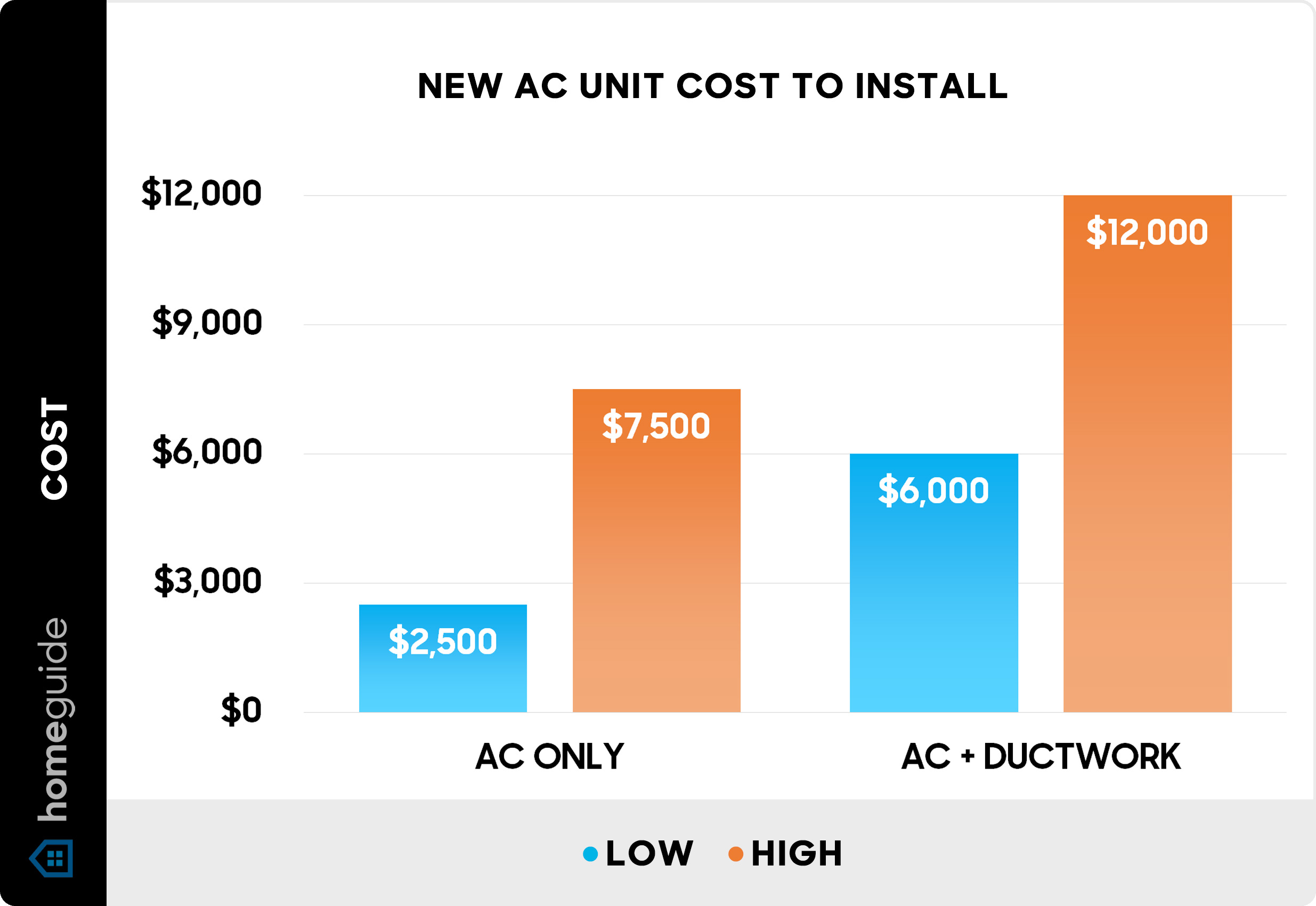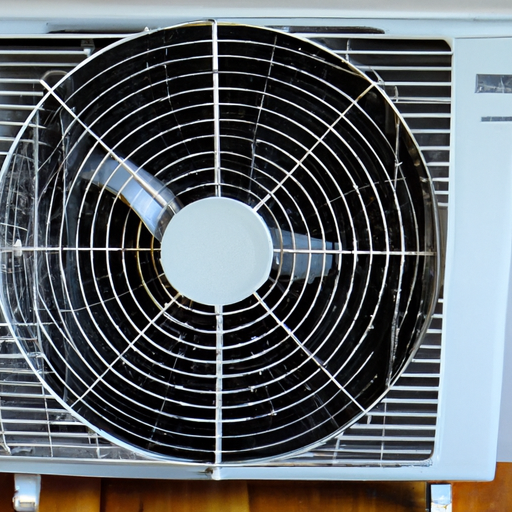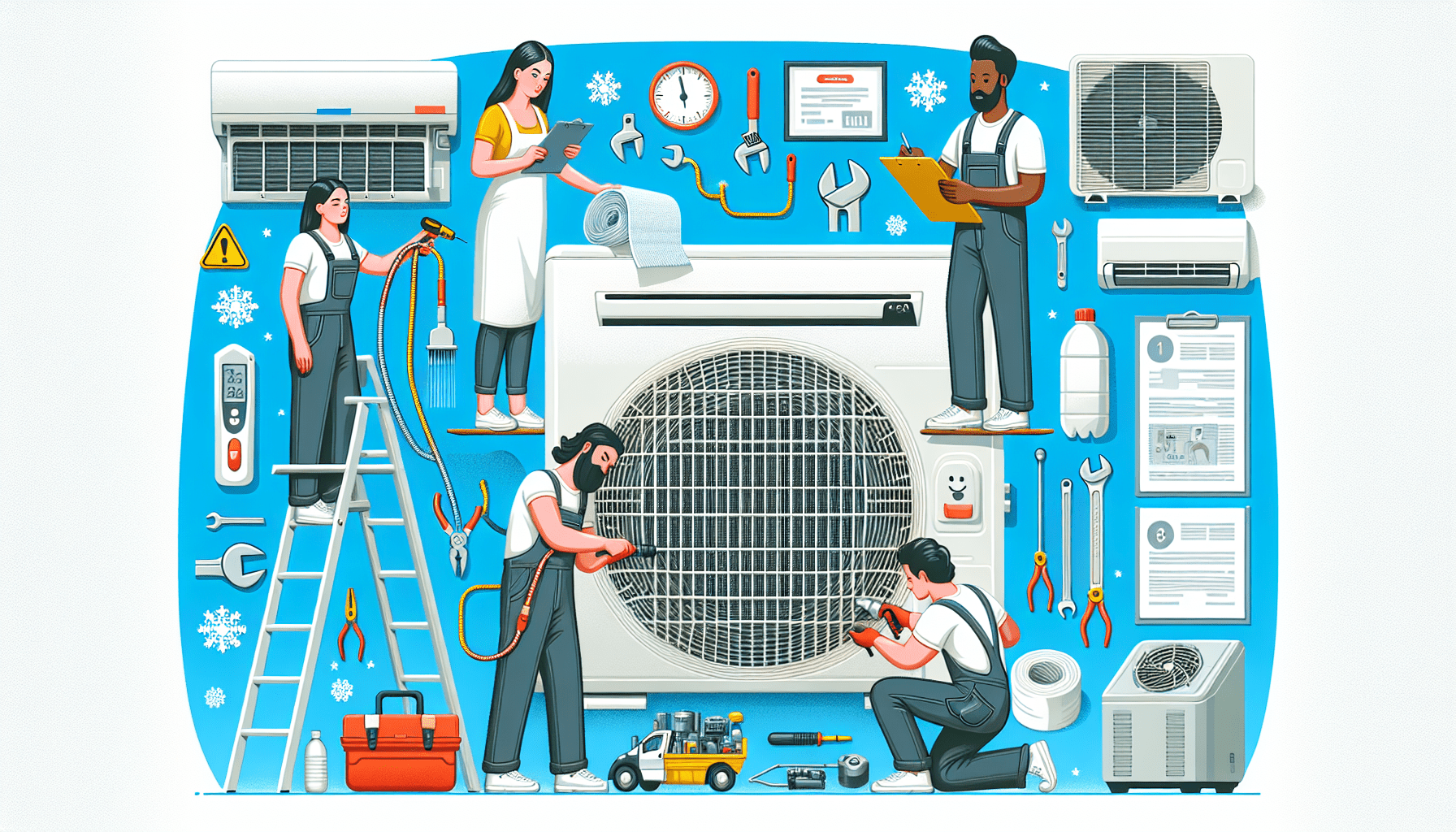When it comes to staying cool during those sweltering summer days, your air conditioning system is a saving grace. But like any mechanical equipment, it has a lifecycle, and eventually, it may need to be replaced. If you’re wondering whether it’s time to bid farewell to your trusty A/C and invest in a new one, keep an eye out for these top 10 signs that indicate it may be time for an upgrade. From rising energy bills to inconsistent cooling, these warning signs can help you make an informed decision and ensure your home remains a comfortable oasis.
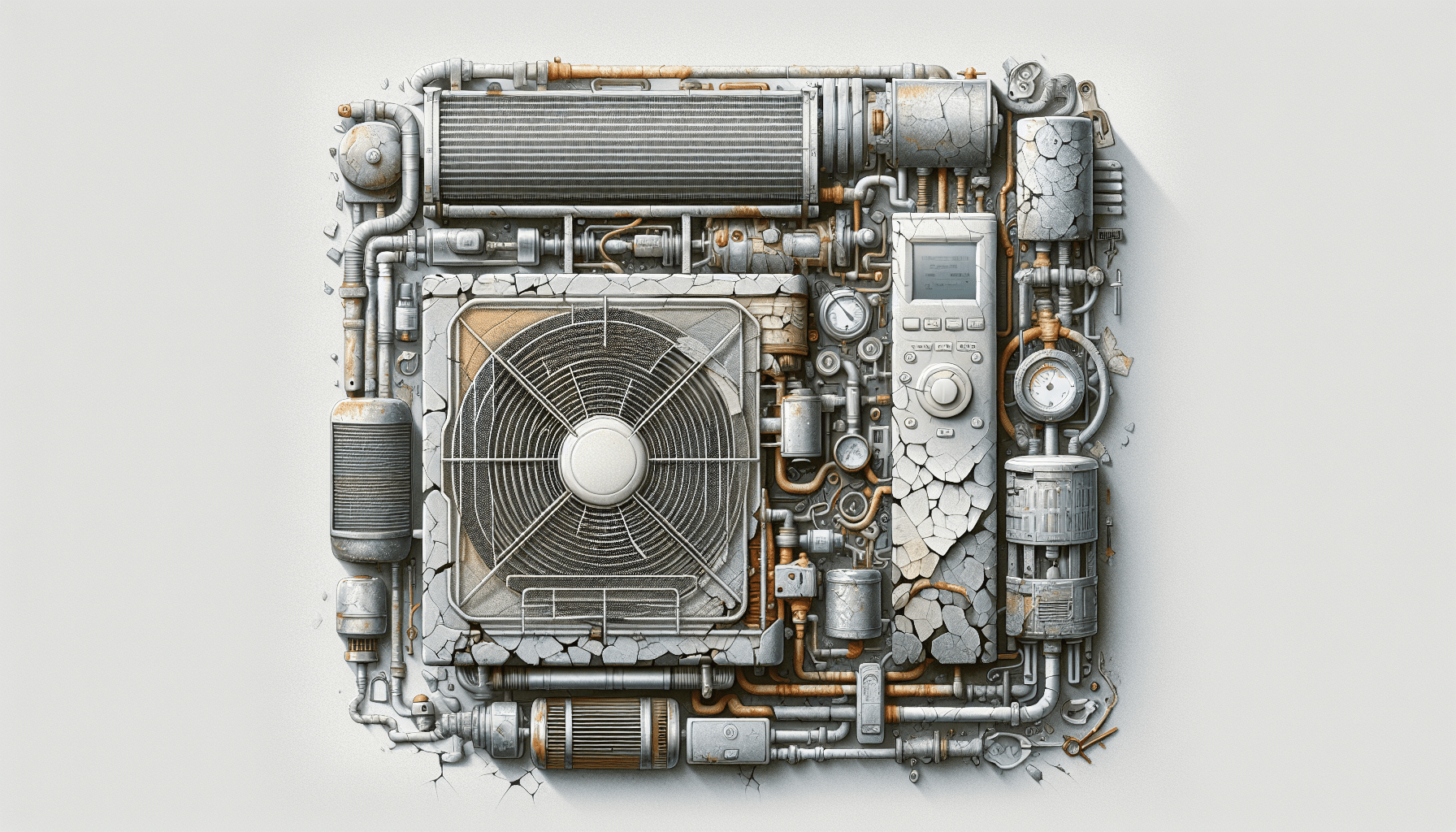
Age of the System
Recognizing the productive lifespan of an AC unit
When it comes to your air conditioning system, age plays a significant role in determining its efficiency and effectiveness. While it’s true that AC units are designed to last for many years, they do have a productive lifespan. Over time, wear and tear take a toll on the system, leading to decreased performance and increased energy consumption. It’s important to recognize when your AC unit has reached its limit and is no longer capable of providing optimal cooling.
Understanding when the cost of repairs exceeds the value of the system
As your AC unit ages, it is likely to experience more frequent breakdowns and require repairs. While occasional repair work is normal, it’s crucial to assess the cost of these repairs in relation to the value of the system. If you find yourself constantly shelling out money for repairs that only provide temporary fixes, it may be a sign that the system is no longer worth investing in. At a certain point, the cost of repairs can exceed the value of the AC unit, and it becomes more economical to consider a replacement.
Knowing the typical lifespan of most air conditioning units
To gauge the condition of your AC unit, it’s essential to have an understanding of its typical lifespan. On average, most air conditioning units have a lifespan of about 10-15 years. However, factors such as maintenance, usage, and environmental conditions can impact the longevity of your system. Regular maintenance and proper care can extend the lifespan, while neglect and harsh conditions may shorten it. By keeping track of the age of your AC unit and considering its overall condition, you can make an informed decision about whether it’s time for a replacement.
Increased Energy Bills
Noting a significant rise in energy costs
One of the first signs that your air conditioning system may be reaching the end of its lifespan is a significant increase in your energy bills. If you’ve noticed a sudden spike in your monthly electricity expenses without any changes in usage patterns, it’s worth investigating the efficiency of your AC unit. As systems age, they become less energy-efficient, causing them to consume more electricity to provide the same level of cooling. This increased energy consumption can quickly add up and impact your overall household budget.
Awareness of inefficient energy consumption
Inefficient energy consumption is a common problem in aging AC units. As the system deteriorates over time, it struggles to cool your home efficiently, resulting in longer running times and higher energy usage. This inefficiency not only drives up your energy bills but also puts unnecessary strain on the system. By paying attention to your energy consumption and considering any changes in your AC unit’s performance, you can determine if it’s time to replace it with a more energy-efficient model.
Understanding the correlation between old units and increased energy bills
Older AC units often lack the advanced technology and energy-saving features found in newer models. These outdated systems are designed to meet older energy efficiency standards, which are significantly lower compared to the latest industry standards. As a result, they consume more energy to achieve the same cooling output. By upgrading to a newer, more energy-efficient system, you can not only reduce your energy bills but also contribute to a more sustainable and eco-friendly household.
Frequent Repairs
Monitoring the frequency and cost of repairs
Persistent repair issues can be a clear indication that your AC system is on its last legs. If you find yourself making frequent calls to HVAC technicians and spending a significant amount of money on repairs, it’s time to evaluate whether your current system is worth holding onto. While occasional repairs are expected, it’s important to assess the frequency and cost of these repairs to determine if they are becoming a burden.
Evaluating if recurring issues signify a failing system
Recurring issues, such as refrigerant leaks, compressor failures, or motor problems, can signal a failing AC system. When these problems begin to surface frequently, it indicates that the overall health of your AC unit is deteriorating rapidly. If left unaddressed, these frequent issues can lead to a breakdown of the entire system. By recognizing the pattern of recurring issues, you can make an informed decision on whether it’s more cost-effective to continue investing in repairs or opt for a replacement.
Establishing when it is more economical to replace versus repair
While repairs can provide temporary solutions, there comes a point where it becomes more economical to replace your AC unit rather than continue investing in repairs. If you find yourself facing a costly repair that is equivalent to a significant portion of the replacement cost, it may be wiser to put that money towards a new, more reliable system. Additionally, older systems are more likely to encounter additional problems shortly after a repair, leading to a never-ending cycle of expenses. Considering the age, condition, and cost of repairs can help you determine if it’s time to replace your AC unit.
Inconsistent Temperatures
Experiencing inconsistent or uncomfortable temperatures
When your air conditioning system is no longer performing at its best, you may start experiencing inconsistent or uncomfortable temperatures throughout your home. Rooms may feel too warm or too cold, even when your AC unit is running continuously. This lack of consistent cooling can make it challenging to maintain a comfortable indoor environment, leading to discomfort and frustration.
Identifying lack of cool air or failure to reach set temperature
If your AC unit is struggling to blow cool air or is unable to reach the desired temperature, it’s a clear sign that something is amiss. As your system ages, its cooling capacity diminishes, resulting in insufficient cooling performance. If you find yourself constantly adjusting the thermostat but never achieving the desired level of comfort, it may be time to consider replacing your AC unit.
Noticing hot and cold spots in different areas of the home
Hot and cold spots within your home can be an indication of an AC system that is no longer functioning optimally. As your system ages, it may struggle to effectively distribute cool air throughout your home, leading to temperature disparities. Certain areas may feel excessively warm while others remain uncomfortably cold. If you’ve noticed these inconsistencies in temperature, it’s worth having your AC unit inspected to determine if a replacement is necessary.
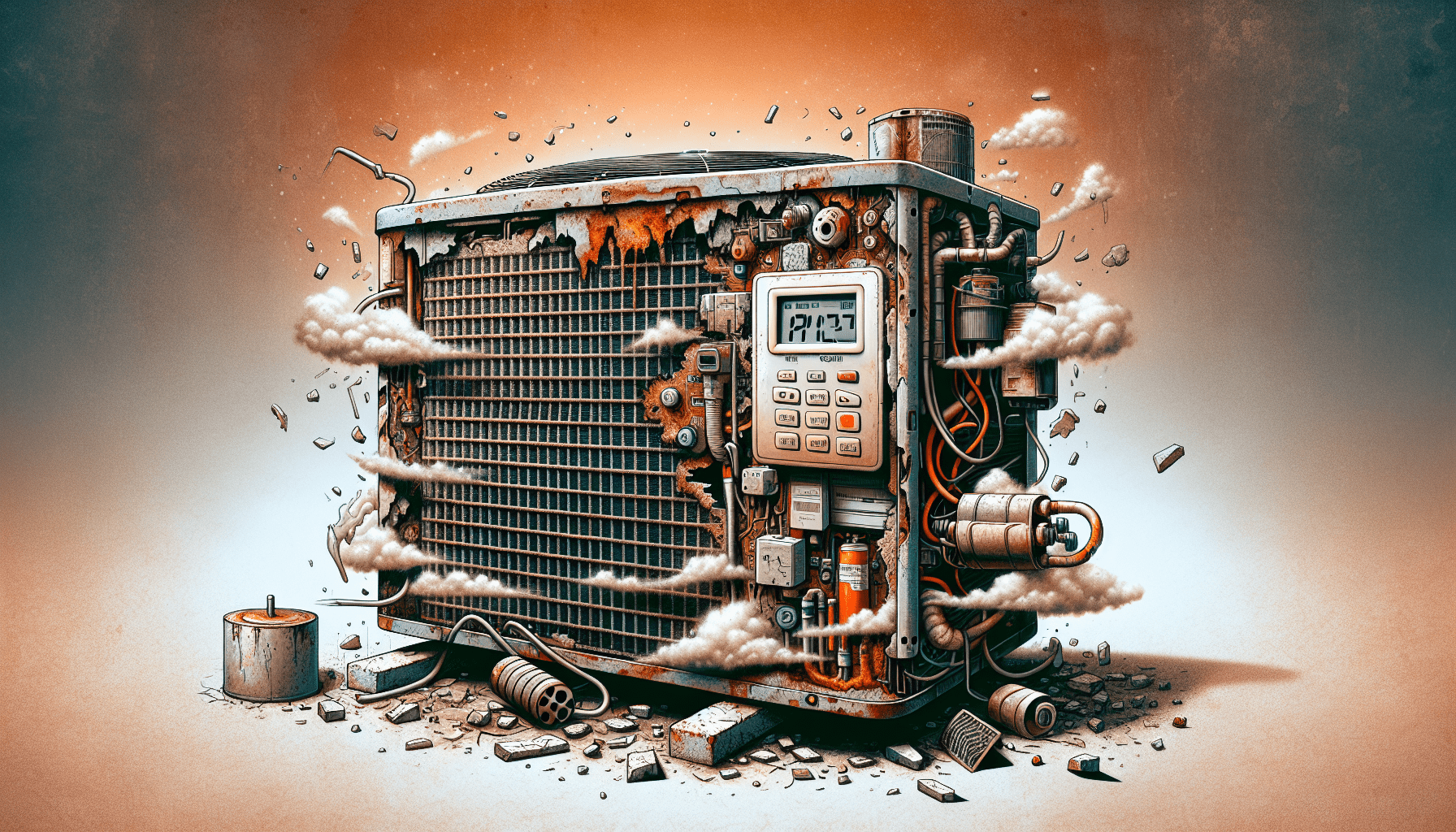
Poor Air Quality
Dealing with increased dust levels in the home
If you’ve noticed a substantial increase in dust levels within your home, your AC unit may be to blame. As systems age, they can become less effective at filtering out dust particles and other allergens from the air. This can result in higher levels of dust accumulation in your living spaces, leading to a constant battle with cleaning and allergies. If you find yourself consistently battling dust issues, it may be time to consider upgrading your AC unit to improve your indoor air quality.
Observing worsening allergy symptoms
Poor air quality can have a significant impact on those who suffer from allergies. If you or your family members are experiencing worsening allergy symptoms, such as sneezing, coughing, or itchy eyes, it may be a sign that your AC unit is no longer effectively filtering out allergens and pollutants. Upgrading to a newer system with enhanced filtration capabilities can greatly improve the quality of your indoor air and provide relief from allergy symptoms.
Understanding the role of AC units in controlling air humidity
Apart from cooling, AC units also play a crucial role in controlling the humidity levels in your home. As AC systems age, they may struggle to effectively remove excess moisture from the air, leading to increased humidity levels indoors. High humidity can create a damp and uncomfortable environment, promoting the growth of mold and mildew. By recognizing the impact of your AC unit on air humidity and addressing any issues, you can ensure a comfortable and healthy indoor living space.
Strange Noises or Smells
Taking note of unusual noises coming from the unit
If your AC unit starts making strange or unusual noises, it’s a clear sign that there may be underlying issues. Grinding, banging, squealing, or rattling sounds can indicate problems with the motor, fan, or other components. Ignoring these noises can lead to further damage and potentially costly repairs. If you’ve noticed any unusual sounds coming from your AC unit, it’s best to have it inspected by a professional to determine the cause and whether a replacement is necessary.
Addressing unusual smells emanating from the air conditioning system
Unpleasant odors coming from your AC unit should never be ignored. Musty or foul smells can indicate mold or mildew growth within the system, which can have serious implications for your indoor air quality and health. Additionally, the presence of burning or electrical odors may signal potential electrical issues that require immediate attention. If you’ve noticed any unusual smells coming from your AC unit, it’s essential to have it evaluated by a professional to ensure the safety and functionality of your system.
Knowing when the sounds or smells signify a serious problem
Unusual sounds or smells coming from your AC unit should not be taken lightly as they can indicate serious problems. Ignoring these signs can lead to further damage and potentially endanger the safety of your home and family. It’s important to address these issues promptly by seeking professional help. A qualified technician can assess the situation, determine the severity of the problem, and guide you on whether a repair or replacement is necessary to maintain a safe and efficient cooling system.
Frequent Cycle Switches
Monitoring if the AC cycles on and off too frequently
An air conditioning system that cycles on and off frequently, known as short cycling, is a cause for concern. Short cycling can indicate various issues, including an improperly sized system, a malfunctioning thermostat, or a failing compressor. Regardless of the cause, frequent cycle switches put unnecessary strain on the system and can lead to premature wear and tear. If you’ve noticed your AC unit cycling on and off too frequently, it’s advisable to consult a professional to diagnose the problem and determine the best course of action.
Determining if the cooling cycle lengths are inconsistent
In addition to monitoring the frequency of cycle switches, it’s important to assess the consistency of cooling cycle lengths. If your AC unit’s cooling cycles are irregular, with some being too short and others excessively long, it may indicate underlying problems. Inconsistent cycle lengths can be a sign of an aging system struggling to maintain a stable temperature. Evaluating the regularity of cooling cycles can help identify whether your AC unit is still capable of providing the cooling efficiency you need.
Understanding the significance of the AC system constantly running
If your AC system seems to be running constantly without achieving the desired temperature or shutting off, it’s a clear indication that there may be a problem. An air conditioning system that never seems to reach a satisfactory cooling level is likely to be inefficient and in need of replacement. Constantly running your AC unit not only wastes energy but also puts additional strain on the system, increasing the likelihood of breakdowns. It’s important to address this issue promptly to ensure optimal performance and energy efficiency.
Increased Humidity
Feeling a damp or sticky indoor environment
High humidity levels can make your home feel damp and sticky, making it uncomfortable for you and your family. If you consistently experience this type of indoor environment, it could be a sign that your AC system is no longer effectively controlling humidity. Aging systems may struggle to remove excess moisture from the air, leading to a persistently humid indoor environment. Upgrading to a newer AC unit with proper humidity control capabilities can help alleviate this issue, providing a more comfortable living space.
Identifying ineffective humidity control
In addition to causing discomfort, ineffective humidity control can contribute to other issues within your home. High humidity provides the perfect breeding ground for mold, mildew, and other allergens, compromising your indoor air quality and potentially affecting your health. If you’re noticing excessive condensation on windows, musty odors, or signs of mold growth, it’s important to address the humidity control issue. Considering an AC system upgrade with improved humidity control features can help you maintain a healthy and comfortable home environment.
Understanding how proper AC units should moderate humidity levels
An essential function of air conditioning systems is to regulate indoor humidity levels. Proper AC units are designed to remove excess moisture from the air, preventing the growth of mold and mildew while creating a comfortable indoor environment. When your AC unit is no longer effectively moderating humidity levels, it can lead to a range of problems. Understanding the role of AC units in controlling humidity and recognizing their limitations over time can guide you in determining whether it’s time for a replacement to ensure optimal humidity control.
Leakage or Moisture Problems
Spotting leaks or puddles around the AC unit
If you’ve noticed water leaks or puddles around your AC unit, it’s important not to ignore them. Water leakage is a clear sign of a problem within the system, such as a blocked drain line, a malfunctioning condensate pump, or refrigerant leaks. These issues can not only damage your AC unit but also pose safety risks. It’s crucial to have a professional assess the situation and address any leaks promptly to prevent further damage and potential hazards.
Identifying refrigerant leaks and understanding potential hazards
Refrigerant leaks can occur as AC units age, leading to reduced cooling performance and potential health hazards. Refrigerant leaks not only impact the efficiency of the system but can also release harmful chemicals into the environment. If you notice a decline in cooling performance, hissing sounds, or an oily residue around your AC unit, it’s important to have it inspected for refrigerant leaks. Promptly addressing these leaks can prevent further damage to the system and ensure a safe and efficient operation.
Dealing with excessive condensation on or around the unit
While some condensation around the AC unit is normal, excessive condensation can be a cause for concern. Excessive condensation can lead to water damage in your home and indicate potential issues with the AC system. Improper drainage, insulation problems, or refrigerant leaks can contribute to excessive condensation. If you’re consistently dealing with excessive condensation on or around your AC unit, it’s important to have it examined by a professional to determine the source of the problem and decide on a suitable solution, which may involve replacing the unit.
Outdated Technology
Recognizing when the AC system lacks modern features
As technology advances, so do the features and capabilities of air conditioning systems. Older AC units may lack modern features that enhance energy efficiency, convenience, and overall performance. Recognizing when your AC system is outdated and missing out on these advancements is essential in making an informed decision about replacement. Features such as programmable thermostats, zoning options, and smart connectivity can greatly improve your cooling experience and contribute to energy savings.
Understanding the benefits of energy-efficient and smart technology
Energy-efficient and smart technology have revolutionized the air conditioning industry, offering significant benefits to homeowners. Energy-efficient systems consume less energy, leading to reduced energy bills and a smaller carbon footprint. Smart technology allows you to remotely control and monitor your AC unit, optimizing its performance and providing greater convenience. By understanding the advantages of these technologies, you can make an informed decision about upgrading your AC system to reap the benefits of enhanced efficiency and control.
Weighing the upgrade benefits against the cost of a new system
While upgrading to a new AC system with modern features and technology can provide numerous benefits, it’s important to weigh these advantages against the cost of a new unit. Replacing an entire AC system can be a significant investment, so it’s crucial to consider factors such as energy savings, increased comfort, and potential long-term maintenance costs. Evaluating the benefits alongside the upfront cost can help you determine the value and return on investment of upgrading to a new system.
In conclusion, recognizing the signs that it’s time to replace your air conditioning system is vital for ensuring optimal comfort, energy efficiency, and indoor air quality. By monitoring factors such as the age of the system, increased energy bills, frequent repairs, inconsistent temperatures, poor air quality, strange noises or smells, frequent cycle switches, increased humidity, leakage or moisture problems, and outdated technology, you can make an informed decision about investing in a new AC unit. Remember, your AC system plays a crucial role in maintaining a comfortable and healthy home environment, so it’s important to prioritize its performance and consider a replacement when necessary.

